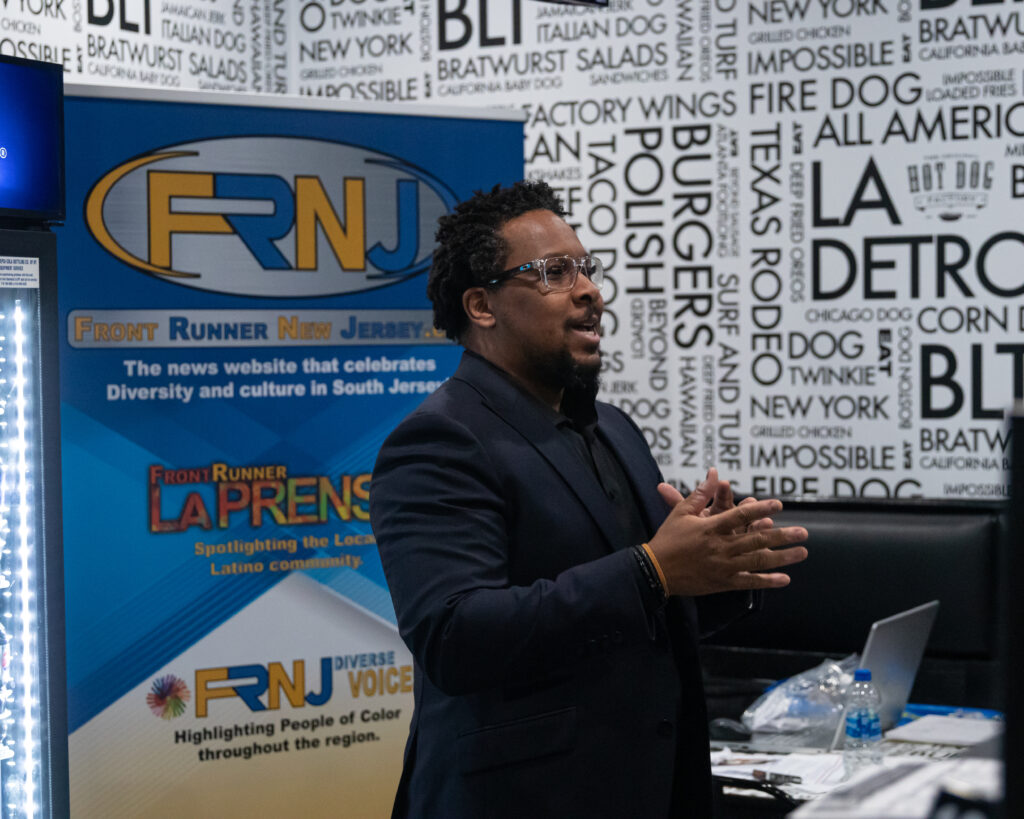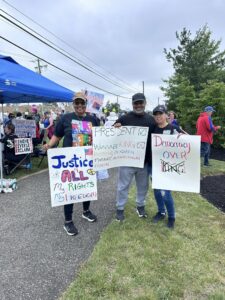Rann Miller: Fear of a Black History

OP-ED
By Rann Miller | AC JosepH Media Guest Blogger
Since the Florida Board of Education passed new standards for its African American History curriculum, it hasn’t been received well.
In a statement, Derrick Johnson, president of the NAACP said, “Our children deserve nothing less than truth, justice and the equity our ancestors shed blood, sweat and tears for.” The Florida Education Association called the new standards a “disservice to Florida students” and a “big step backwards.” Vice President Kamala Harris said of the Florida BOE, “They insult us in an attempt to gaslight us and we will not stand for it.”
To be clear, the newly approved K-12 standards in Florida are problematic.
For grades K-4, the standards relegate Black history as a teaching of famous artists, entertainers and inventors. There is no mention of freedom fighters with the commonly accepted [and often whitewashed] exceptions of Dr. King, Rosa Parks and Jesse Owens.
Throughout the rest of the standards, there’s no mention of where enslavement was a hidden policy of the Constitution and no mention of racial capitalism’s European origins that set the foundation for the U.S. economic system.
There’s also no mention of chattel enslavement. There is however a positioning of the European enslavement of Africans as something similar to enslavement in the East (including Africa) where enslavement seemed to have originated from. And of course, there is no mention that African people arrived in chains with skills; rather they acquired skills to help them once emancipated during their enslavement.
While attacking Harris, a piece in the National Review attempted to explain away the concerns about the standards by listing all the places that included words like slavery, slaves, abolitionism, civil rights and African Americans.
Words alone don’t equate fairness, justice or liberation. In addition, the words slavery and slave are offensive; African people were enslaved, not slaves. African people’s condition wasn’t slavery. Rather they were forced to participate within a system of enslavement, rooted in the principles of racial capitalism.
That the piece cites use of phrase African American within the curriculum of an African American history course is laughable.
But more important of note, words without context or purpose are just words. While a list 191 items seems robust, failure to inspect the context and purpose of instruction around those words prove such as list to be inadequate. Which begs the question, what is the aim of this curriculum by Florida? But that’s too easy a question to ask.
What should be asked is how many states have an African American History curriculum similar to Florida? That’s the question to ask because many of the problems with Florida’s curriculum are likely issues with what African American history course around the country.
The immediate backlash to that question is that it sounds like more of an assumption than question. But in my experiences as a Black K-12 student, I can tell you that I experienced some of these fallacies in regular history classes. As a Black educator, I’ve seen these fallacies throughout African American history curricula in the schools I’ve served young people.
The reality is that on average, only 8-9% of history class time is devoted to Black history, while some states neglect the subject altogether, according to a study conducted by the National Museum of African American History and Culture (NMAAHC) and Oberg Research.
While Florida is one of eleven states that actually mandate that Black history is taught in schools, according to LaGarrett J. King, the founding director of the center for K-12 Black History and Racial Literacy Education housed within the Graduate School of Education at the University at Buffalo, many of these Black history mandates are often more of a symbolic gesture; particularly when Black history — labeled as Critical Race Theory — is under attack in some of these states.
That these mandates are simply a symbolic gesture is twofold.
First, as King shared, states fail to provide adequate teacher training and educator guidelines to teach Black history properly. I might add that the lack of Black teachers in the classroom to teach it makes a difference also. Second, and more importantly, teaching Black history is really about confronting the systemically anti-Black racist history of the United States.
Historian Robin D.G. Kelley explained that Black Studies was “born out of a struggle for freedom and a genuine quest to understand the world in order to change it, presenting political and moral philosophy with their most fundamental challenges.” According to Cedric Robinson, the late political theorist, Black Studies is a “critique of Western Civilization.”
This critique of Western Civilization — that is Black Studies (which includes Black history), as Robinson describes it, opens the eyes of students to see the ways our anti-Black racist past continues to inform our present conditions.
The ability to link Europe’s racial capitalist roots and the U.S. white settler origins to the gaps in wealth, health, housing, education and otherwise where whites are privileged and Blacks are privileged for peril is not only enlightening, but it empowers one to engage in activism on behalf of the aggrieved — whether Black or white.
The enlightened therefore must confront their own moral compass where they are compelled to either fight anti-Blackness or to continue living with it. For students of Black history, there is only one choice, shared by MLK, “We do not need allies more devoted to order than to justice.”
While MLK maybe in Florida textbooks, those words are not. Because teaching Black History, as it was intended, forces us to ask questions with uncomfortable answers; to change uncomfortably unjust lives — due to the color of one’s skin — for the better.
This is what scares Ron DeSantis and white men like him: the mass challenge to the order and power of whiteness; the fear that America is no longer a country for white men. Ron DeSantis and those of his ilk wouldn’t have Florida students empowered to search for those uncomfortable answers.
Thankfully, Black educators like myself continue highlighting those uncomfortable answers, by asking students many questions.
Bio: Rann Miller directs the 21st Century Community Learning Center, a federally funded after-school program located in southern New Jersey. He spent years teaching in charter schools in Camden, New Jersey. He is the creator, writer, and editor of the Official Urban Education Mixtape Blog. Follow him on Twitter: @UrbanEdDJ.
Follow Us Today On:
Note from AC JosepH Media: If you like this story and others posted on Front Runner New Jersey.com, lend us a hand so we can keep producing articles like these for New Jersey and the world to see. Click on SUPPORT FRNJ and make a contribution that will go directly in making more stories like this available. Thank you for reading.




